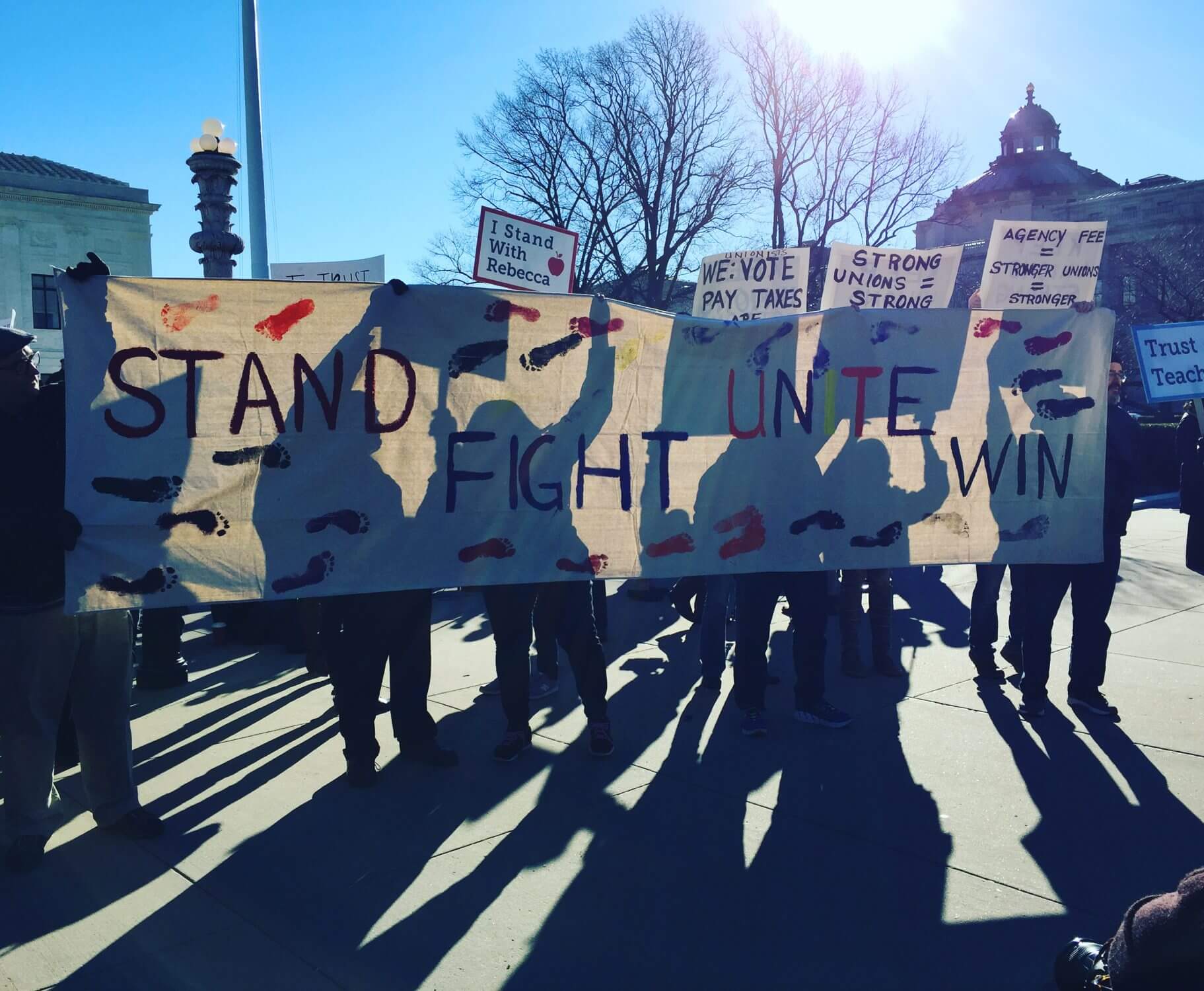WASHINGTON- Demonstrators rallied outside the Supreme Court on Monday morning ahead of the hearing of Friedrichs v. California Teachers Association.
The case challenges the requirement that teachers, including non-union members, are required to pay agency fees to their local union and its state and national affiliates for collective bargaining purposes, according to court documents.
“This is a historic date in education,” said Gerard Robinson, a resident fellow at the American Enterprise Institute in Washington. “There have been times in American history where certain Supreme Court decisions change the ebb and flow of education, Brown v. Board of Education being one of them, and I think this case has the potential to do it, too. It’s an education case, but it’s also about individuals’ rights to decide how to use their money.”
Robinson stressed that teachers in support of Friedrichs’ are not anti-union, but rather in favor of giving teachers the opportunity to join a union or not.
Although the teachers association case specifically relates to teachers unions, it has broader implications for other public employee unions. The case could result in the overturning of a 40-year-old court decision that upheld a union’s ability to assess non-members with collective bargaining fees.
Both sides of the argument were represented outside the courtroom.
“It’s not just about teachers, it’s about your rights, that’s all union members across the United States,” said Rosalind Walker, a registered nurse in the California public sector and a member of National Nurses United. “For nurses, if our rights are taken away, then we won’t be able to advocate for our patients safely. See, they’re focusing on one little group, but it’s really about everybody and your freedoms.”
According to its website, National Nurses United represents close to 185,000 members in every state.
Many pro-union forces at the rally advocated that the case would take away their “collective voice” to speak together on issues.
“I work with abused and neglected children, so I know when I can stand together with my colleagues and speak with one voice we can get the resources we need to help kids,” said Peter MacKinnon, a child protection social worker from Massachusetts. “If the Frederichs’ case happens as we fear, it’s going to be really hard for working people to stand together and speak for what is right.”

